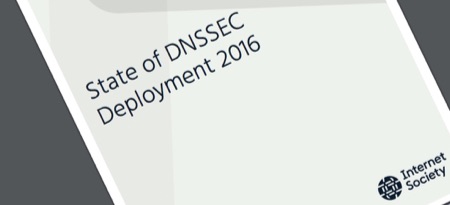It’s going to be a crazy busy week in London next week in the world of DNS security and privacy! As part of our Rough Guide to IETF 101, here’s a quick view on what’s happening in the world of DNS. (See the full agenda online for everything else.)
IETF 101 Hackathon
As usual, there will be a good-sized “DNS team” at the IETF 101 Hackathon starting tomorrow. The IETF 101 Hackathon wiki outlines the work (scroll down to see it). Major security/privacy projects include:
- Implementing some of the initial ideas for DNS privacy communication between DNS resolvers and authoritative servers.
- Implementation and testing of the drafts related to DNS-over-HTTPS (from the new DOH working group).
- Work on DANE authentication within systems using the DNS Privacy (DPRIVE) mechanisms.
Anyone is welcome to join us for part or all of that event.
Thursday Sponsor Lunch about DNSSEC Root Key Rollover
On Thursday, March 22, at 12:30 UTC, ICANN CTO David Conrad will speak on “Rolling the DNS Root Key Based on Input from Many ICANN Communities“. As the abstract notes, he’ll be talking about how ICANN got to where it is today with the Root KSK Rollover – and about the open comment period on the plan to roll the KSK in October 2018.
David’s session will be streamed live for anyone wishing to view remotely.
DNS Operations (DNSOP)
The DNS sessions at IETF 101 really begin on Tuesday, March 20, with the DNS Operations (DNSOP) Working Group from 15:50 – 18:20 UTC. Several of the drafts under discussion will relate to the Root KSK Rollover and how to better automate and monitor key rollovers. DNSOP also meets on Thursday, March 22, from 18:10-19:10, where one draft of great interest will be draft-huque-dnsop-multi-provider-dnssec. This document explores how to deploy DNSSEC in environments where multiple DNS providers are in use. As per usual, given the critical role DNS plays, the DNSOP agenda has many other drafts up for discussion and action.
DNS PRIVate Exchange (DPRIVE)
The DPRIVE working group meets Wednesday afternoon from 13:30-15:00 UTC. As shown on the agenda, there will be two major blocks of discussion. First, Sara Dickinson will offer recommendations for best current practices for people operating DNS privacy servers. This builds off of the excellent work she and others have been doing within the DNS Privacy Project.
The second major discussion area will involve Stephane Bortzmeyer discussing how to add privacy to the communication between a DNS recursive resolver and the authoritative DNS server for a given domain. When the DPRIVE working group was first chartered, the discussion was whether to focus on the privacy/confidentiality between a stub resolver and the local recursive resolver; or between the recursive resolver and authoritative server; or both. The discussion was to focus on the stub-to-recursive-resolver connection – and that is now basically done from a standards perspective. So Stephane is looking to move the group on into the next phase of privacy. As a result, the session will also include a discussion around re-chartering the DPRIVE Working Group to work on this next stage of work.
Extensions for Scalable DNS Service Discovery (DNSSD)
On a similar privacy theme, the DNSSD Working Group will meet Thursday morning from 9:30-12:00 UTC and include a significant block of time discussing privacy and confidentiality. DNSSD focuses on how to make device discovery easier across multiple networks. For instance, helping you find available printers on not just your own network, but also on other networks to which your network is connected. However in doing so the current mechanisms expose a great deal of information. draft-ietf-dnssd-privacy-03 and several related drafts explore how to add privacy protection to this mechanism. The DNSSD agenda shows more information.
DNS-Over-HTTPS (DOH)
IETF 101 will also feature the second meeting of one of the working groups with the most fun names – DNS Over HTTPS or… “DOH!” This group is working on standardizing how to use DNS within the context of HTTPS. It meets on Thursday from 13:30-15:30. As the agenda indicates, the focus is on some of the practical implementation experience and the work on the group’s single Internet-draft: draft-ietf-doh-dns-over-https.
DOH is an interesting working group in that it was formed for the express purpose of creating a single RFC. With that draft moving to completion, this might be the final meeting of DOH – unless it is rechartered to do some additional work.
DNSSEC Coordination informal breakfast meeting
Finally, on Friday morning before the sessions start we are planning an informal gathering of people involved with DNSSEC. We’ve done this at many of the IETF meetings over the past few years and it’s been a good way to connect and talk about various projects. True to the “informal” nature, we’re not sure of the location and time yet (and we are not sure if it will involve food or just be a meeting). If you would like to join us, please drop me an email or join the dnssec-coord mailing list.
Other Working Groups
DANE and DNSSEC will also appear in the TLS Working Group’s Wednesday meeting. The draft-ietf-tls-dnssec-chain-extension will be presented as a potential way to make DANE work faster by allowing both DANE and DNSSEC records to be transmitted in a single exchange, thus reducing the time involved with DANE transactions. Given the key role DNS plays in the Internet in general, you can also expect DNS to appear in other groups throughout the week.
P.S. For more information about DNSSEC and DANE and how you can get them deployed for your networks and domains, please see our Deploy360 site:
- http://www.internetsociety.org/deploy360/dnssec/
- http://www.internetsociety.org/deploy360/resources/dane/
Relevant Working Groups at IETF 101:
DNSOP (DNS Operations) WG
Tuesday, 20 March 2018, 15:50-18:30 UTC, Sandringham
Thursday, 22 March 2018, 18:10-19:10 UTC, Sandringham
Agenda: https://datatracker.ietf.org/meeting/101/agenda/dnsop/
Documents: https://datatracker.ietf.org/wg/dnsop/
Charter: http://tools.ietf.org/wg/dnsop/charters/
DPRIVE (DNS PRIVate Exchange) WG
Wednesday, 21 March 2018, 13:30-15:00 UTC, Balmoral
Agenda: https://datatracker.ietf.org/meeting/101/agenda/dprive/
Documents: https://datatracker.ietf.org/wg/dprive/
Charter: http://tools.ietf.org/wg/dprive/charters/
DNSSD (Extensions for Scalable DNS Service Discovery) WG
Thursday, 22 March 2018, 9:30-12:00 UTC, Buckingham
Agenda: https://datatracker.ietf.org/meeting/101/agenda/dnssd/
Documents: https://datatracker.ietf.org/wg/dnssd/
Charter: http://tools.ietf.org/wg/dnssd/charters/
DOH (DNS over HTTPS) WG
Thursday, 22 March 2018, 13:30-15:30 UTC, Blenheim
Agenda: https://datatracker.ietf.org/meeting/101/agenda/doh/
Documents: https://datatracker.ietf.org/wg/doh/
Charter: http://tools.ietf.org/wg/doh/charters/
Follow Us
It will be a busy week in London, and whether you plan to be there or join remotely, there’s much to monitor. Read the full series of Rough Guide to IETF 101 posts, and follow us on the Internet Society blog, Twitter, or Facebook using #IETF101 to keep up with the latest news.
The post Rough Guide to IETF 101: DNSSEC, DANE, DNS Security and Privacy appeared first on Internet Society.

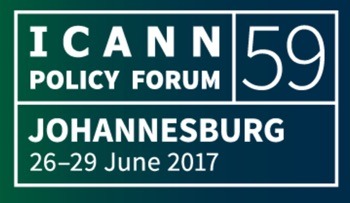
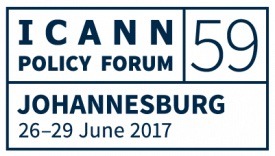
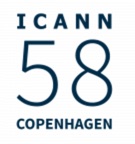 Next week in Copenhagen, Denmark, ICANN 58 will include some great technical info about
Next week in Copenhagen, Denmark, ICANN 58 will include some great technical info about 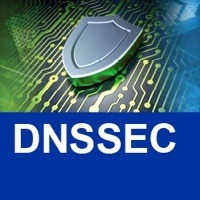 What are the challenges in deploying new cryptographic algorithms for
What are the challenges in deploying new cryptographic algorithms for 